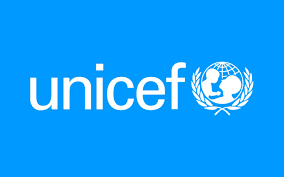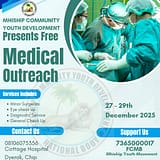
UNICEF Decries Child Malnutrition, Education and Health Gap in Nigeria.
By Chris Miyaptong Data
United Nations Children’s Fund (UNICEF) Representative in Nigeria, Mrs. Cristian Munduate has expressed deep concern over deteriorating living conditions of millions of Nigerian children, warning that poor health, early marriage and lack of education continue to put Nigeria’s future in jeopardy.
Munduate gave the alarming revelation in Lagos while presenting the UNICEF 2024 report on its activities across Nigeria. The event has its theme: ‘’The Nigerian Child, UNICEF 2024 Annual Report, and the Nigerian Media” was organized in partnership with the Nigerian Guild of Editors and Diamond Awards for Media Excellence (DAME).
According to Munduate, an estimated 8 million babies are born annually in Nigeria, one of the highest birth rate globally. However, many of the born children face myriads of challenges right from the point of birth and continue in these challenges and it affects their growth and development.
She frowned at the rate at which children are born at a very high rate in Nigeria and yet their responsibilities are not taken care of at all levels ranging from parents, communities, governments, civil society, the private sector and even the media.
The report reveals that 40 percent of Nigerian children under five years are stunted, a situation that permanently affects brain development and learning capacity. “Stunting before the age of five is irreversible. It limits a child’s intellectual potential for life,’’ Munduate said.
She adds that despite progress made by UNICEF, over 1.3 million Nigerian children still lack access to any form of vaccination, putting them at risk of preventable diseases and many children continue to die because they have not been reached.
Mrs. Munduate noted that while 59 million children were reached through immunization campaigns, a lot of them especially in remote villages and conflict affected areas are barely reached to be helped.
She further exposed that 40 million Nigerians still practice open defecation, posing serious public health risks with only states like Jigawa, Kaduna and Zamfara are making efforts to achieve open defecation-free status so far.
UNICEF representative, Mrs. Munduate also raised concerns over the impact of early child marriage on girls where she observed that it has led to health complications and disruption of their education. She advice the need for the girl child to be encourage to complete the basic primary and secondary education which will help her in the training of her child.
In the aspect of education, UNICEF revealed that despite their efforts, there is a staggering 18 million children, including 10 million in primary school and 8 million in secondary school, who remain out of school hence it advocated for increased government investment in education, infrastructure and teacher training.
On malnutrition, Munduate said nearly one million children are suffering from severe acute malnutrition in Nigeria and despite effort by UNICEF and state governments, the crises is worsening due to rising food insecurity and reduced donor support.
She also revealed that due to the growing impact of climate change, Nigeria ranks among the most climates –risk vulnerable countries in the world hence Munduate appealed to all sectors including the government, media, private sector, religious and traditional leaders to put all hands on deck to help surmount the challenges confronting Nigeria and most especially the girl child in the country.




